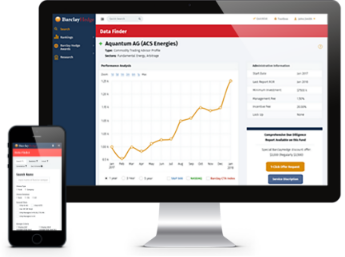An emerging market hedge fund is a hedge fund that specializes its investments in the securities of emerging market countries.
Although there is no exact definition of “emerging market countries,” these countries are in the process of developing. They typically have per-capita incomes on the lower to middle end of the world range, and are in the process of moving from a closed market to an open market.
As a result, emerging market countries include a wide range of nations. China and Russia, two of the world's economic powerhouses, are lumped in the emerging market category with Peru, a much smaller country with fewer resources, because all have recently embarked on economic development and reform programs, and have thus “emerged” onto the global financial scene. In fact, while only around 20% of the world’s nations are considered emerging market countries, these countries constitute approximately 80% of the global population.
Although emerging market stocks have been available for some time through emerging market mutual funds, earlier this decade, institutional investors such as pension funds and endowments started looking for alternative investment options and began pouring money into emerging market hedge funds as well.
Emerging market hedge funds offer one significant advantage over emerging market mutual funds. While mutual funds typically invest only in stocks and bonds, hedge funds can offer exposure to more sophisticated investments, including commodities, real estate, currencies and derivatives (which are contracts to buy or sell another security at a specified price, and include futures and options). Emerging market hedge funds can also use leverage, which is essentially investing with borrowed money. These strategies could significantly increase return potential.
Along with the increase return potential, however, comes increased risk potential. Emerging market hedge funds have all the generic hedge fund risks: For example, hedge funds are typically not as liquid as mutual funds, meaning it is more difficult to sell shares; the strategies they use could lead to significant losses; and they can have high fees. Additionally, investing in the emerging markets has some unique risks, including a lack of transparency, which makes it hard to evaluate investment opportunities; relative illiquidity; and extreme volatility.
In fact, any downturn in these countries’ securities could be self-propagating: If hedge fund investors, faced with a downturn in one emerging market country demand their money back, hedge funds could be forced to sell holdings in unaffected markets to meet redemption requests, leading to a steep slide in regions that weren’t originally affected.
One final downside to emerging market hedge funds is that they, like all hedge funds, are not currently regulated by the U.S. Securities and Exchange Commission (SEC), a financial industry oversight entity. As a result, they are typically open only to a limited range of investors. Specifically, U.S. laws require that hedge fund investors be “accredited,” which means they must earn a minimum annual income, have a net worth of more than $1 million, and possess significant investment knowledge.
In summary, emerging market hedge funds may be a good choice for investors who want more access to the emerging markets than emerging market mutual funds can offer—if they can meet the suitability requirements and are willing to accept the increased risk.
Get comprehensive and up-to-date information on 6100 + Hedge Funds, Funds of Funds, and CTAs in the Barclay Global Hedge Fund Database.


